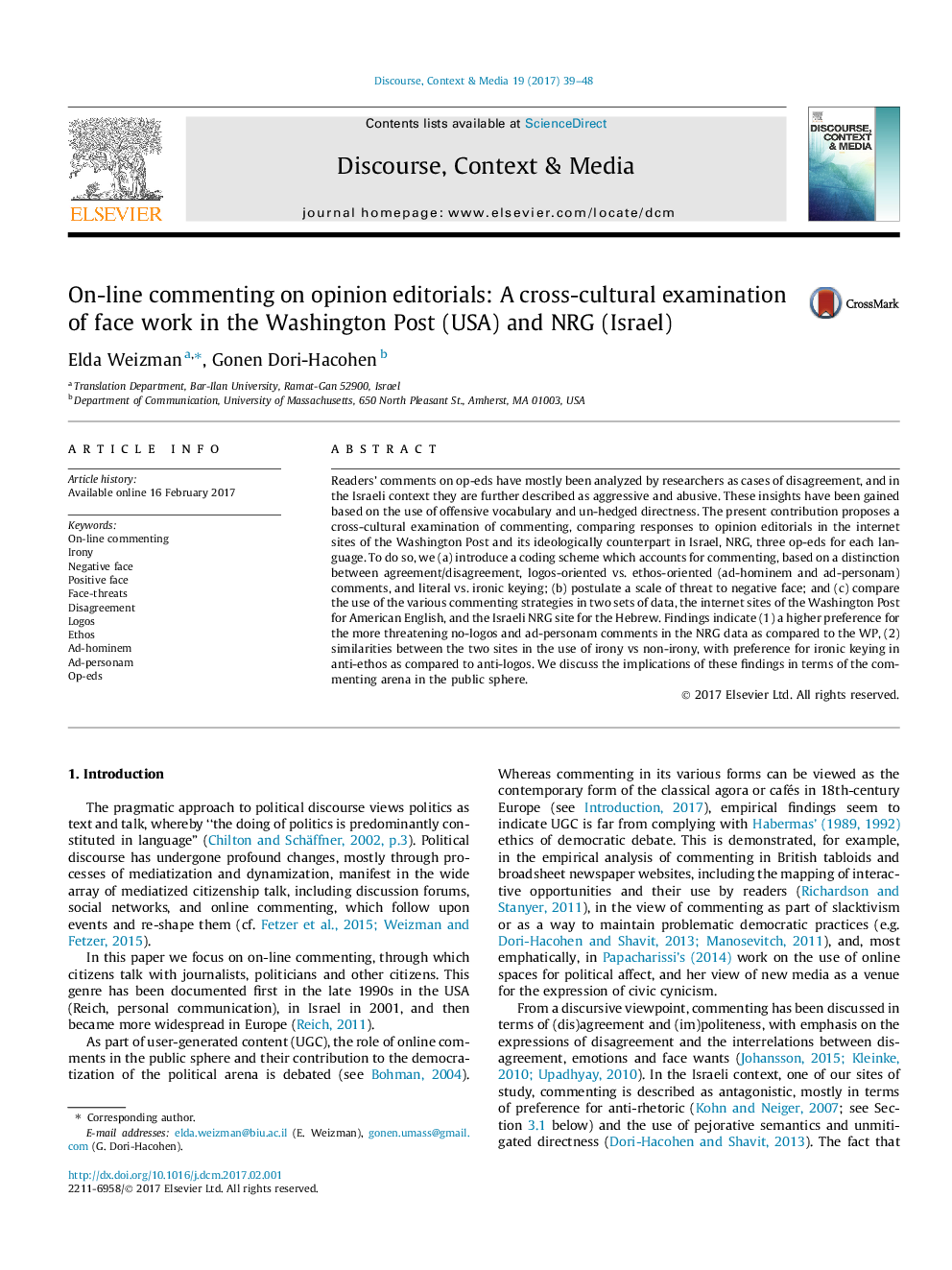| کد مقاله | کد نشریه | سال انتشار | مقاله انگلیسی | نسخه تمام متن |
|---|---|---|---|---|
| 5123999 | 1488063 | 2017 | 10 صفحه PDF | دانلود رایگان |

- We posit that commenting threatens negative face when delimiting range of responses.
- Ad-personam comments present more threat to negative face than ad-hominem comments.
- Ironic keying adds a dimension of negative threat to comments in every category.
- Hebrew data has more negative threat via no-logos and ad-personam than English data.
- Hebrew and English data resemble in the use of irony vs. non-irony.
Readers' comments on op-eds have mostly been analyzed by researchers as cases of disagreement, and in the Israeli context they are further described as aggressive and abusive. These insights have been gained based on the use of offensive vocabulary and un-hedged directness. The present contribution proposes a cross-cultural examination of commenting, comparing responses to opinion editorials in the internet sites of the Washington Post and its ideologically counterpart in Israel, NRG, three op-eds for each language. To do so, we (a) introduce a coding scheme which accounts for commenting, based on a distinction between agreement/disagreement, logos-oriented vs. ethos-oriented (ad-hominem and ad-personam) comments, and literal vs. ironic keying; (b) postulate a scale of threat to negative face; and (c) compare the use of the various commenting strategies in two sets of data, the internet sites of the Washington Post for American English, and the Israeli NRG site for the Hebrew. Findings indicate (1) a higher preference for the more threatening no-logos and ad-personam comments in the NRG data as compared to the WP, (2) similarities between the two sites in the use of irony vs non-irony, with preference for ironic keying in anti-ethos as compared to anti-logos. We discuss the implications of these findings in terms of the commenting arena in the public sphere.
Journal: Discourse, Context & Media - Volume 19, October 2017, Pages 39-48